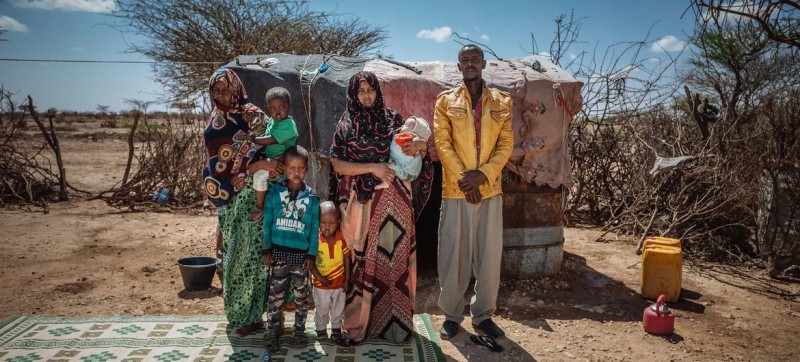© IOM/Muse Mohammed A family displaced by prolonged drought in Ethiopia now live in a makeshift tent in Mogadishu, Somalia.
“The effects of climate change are becoming more severe, and the number of people displaced across international borders is rapidly increasing,” said Ian Fry, independent human rights expert on climate change, who took up the new post last year.
“In 2020 alone, 30.7 million people were displaced from their homes due to weather-related events. Droughts were the main factor,” Mr. Fry said in his latest thematic report to the Human Rights Council in Geneva. “We must take immediate steps to give legal protection to these people.”
Multiple rights violations
The independent expert said that people displaced by climate change face multiple human rights violations including of their rights to food, water, sanitation, housing, health, education and, for some, their basic right to life.
“The human rights implications of climate change displacement, in particular across international borders, are significant and truly disturbing,” the expert said.
He called it “profoundly worrying” that large numbers of people displaced across borders, die or go missing every year on both land and sea.
More than 50,000 lost their lives during migratory movements between 2014 and 2022. “It is equally shocking to note that more than half of those deaths occurred on routes to and within Europe, including in the Mediterranean Sea,” he said.
Displacement and natural disasters
According to the independent expert, displacement due to climate change can take many different forms.
It can involve sudden events or more slow acting factors such sea level rise or drought. Most people affected by these events feel they have no choice but to move. Women and children are the most impacted by disasters and the effects of climate change, and also account for the majority of displaced people.
“The international community must realise its responsibility to protect people displaced across borders by climate change impacts,” the expert said.
Legal protection
Mr. Fry explained that the world was not operating in a total vacuum in terms of legal protection safeguards, with several options already in place.
“The Human Rights Council should prepare a resolution for submission to the UN General Assembly urging the body to develop an optional protocol under the Convention relating to the Status of Refugees to address displacement and legal protection for people all over the world affected by the climate crisis,” the expert said.
“Until then, I urge all nations to develop national legislation to provide humanitarian visas for persons displaced across international borders due to climate change, as an interim measure,” he said.
Independent experts and other UN Human Rights Council-appointed rights experts, work on a voluntary and unpaid basis, are not UN staff, and work independently from any government or organisation.

2023 UN News User Survey
Thank you in advance for agreeing to participate in our survey so we can improve and tailor our products to your needs. The survey will take no more than 4 minutes to complete.




Comments are closed.